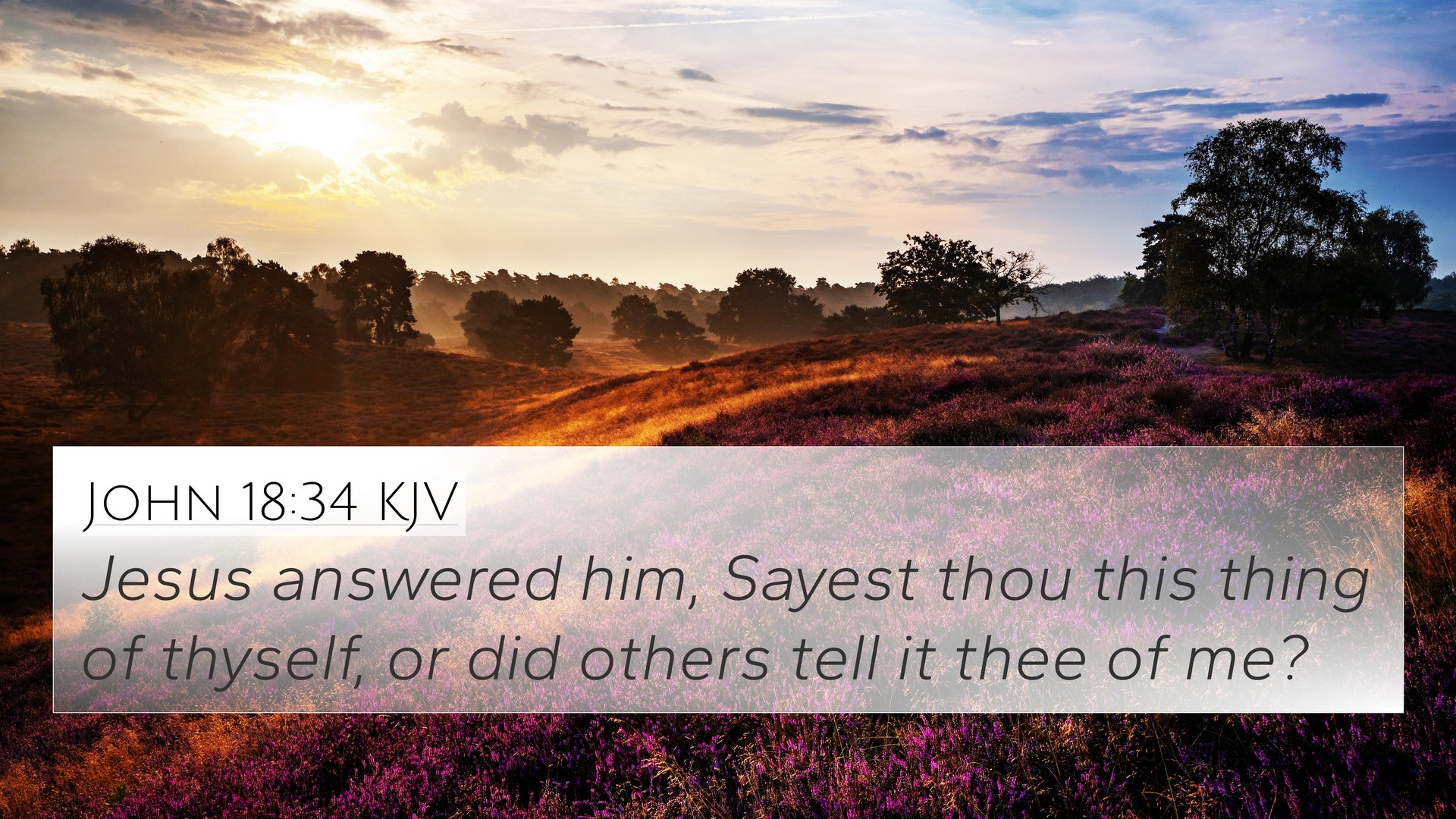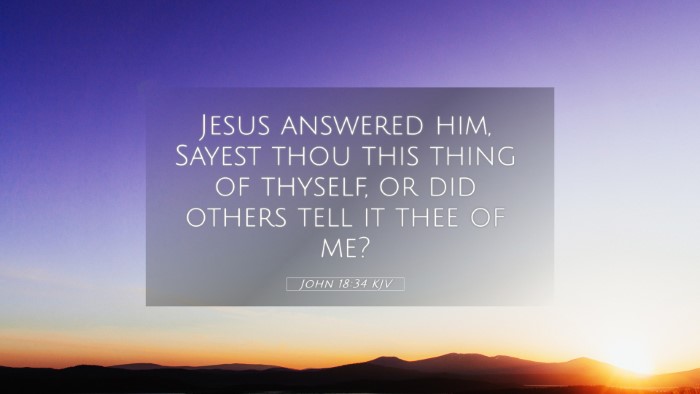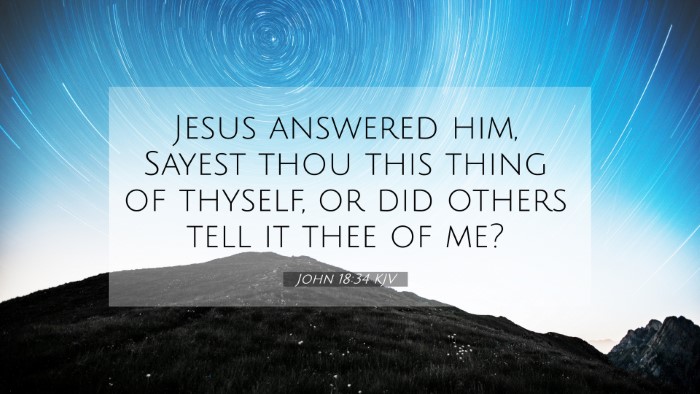Understanding John 18:34
John 18:34 states: "Jesus answered him, 'Sayest thou this thing of thyself, or did others tell it thee of me?'" This verse occurs during the trial of Jesus before Pontius Pilate, and it is rich with layers of meaning that can be uncovered through comparative study and cross-referencing with various biblical texts.
Analysis and Commentary
This verse can be examined through the lenses of various public domain commentaries, which provide insights into its implications on truth, authority, and human inquiry.
Insights from Commentaries
- Matthew Henry: Henry discusses the notion of Jesus responding to questions not merely with straightforward answers, but rather inviting deeper reflection. It reflects the theme that understanding requires more than surface-level inquiry; true insight necessitates genuine engagement with the truth.
- Albert Barnes: Barnes emphasizes the importance of the source of Pilate’s question. He suggests that Jesus challenges Pilate to consider whether the question arises from his own contemplation or the influence of others. This invites a discussion about the nature of knowledge and authority in discerning truth.
- Adam Clarke: Clarke provides a theological perspective, implying that Jesus’ response highlights the nature of His own mission. By asking about the origin of Pilate’s question, Jesus underscores the spiritual blindness of those judging Him, suggesting that revelation comes from God, not mere human inquiry.
Thematic Connections to Other Bible Verses
John 18:34 encourages a comparative analysis with other scripture to uncover deeper theological truths. Here are some connected verses:
- John 3:11: "Verily, verily, I say unto thee, We speak that we do know, and testify that we have seen; and ye receive not our witness." This verse parallels Pilate’s struggle with authority and knowledge.
- 1 Corinthians 2:14: "But the natural man receiveth not the things of the Spirit of God: for they are foolishness unto him: neither can he know them, because they are spiritually discerned." Similar to Pilate’s inquiry, this verse touches upon spiritual enlightenment.
- Luke 22:67: "Art thou the Christ? tell us. And he said unto them, If I tell you, ye will not believe." This illustrates the recurring theme of disbelief in the truth, connecting back to Jesus’ challenge in John 18:34.
- Matthew 27:11: "And Jesus stood before the governor: and the governor asked him, saying, Art thou the King of the Jews? And Jesus said unto him, Thou sayest." This exchange emphasizes the authority of perception versus divine truth.
- Proverbs 18:17: "He that is first in his own cause seemeth just; but his neighbor cometh and searcheth him." This reflects on the human tendency to rely on biased perceptions, much like Pilate’s question originates from external sources.
- John 8:32: "And ye shall know the truth, and the truth shall make you free." This verse contextualizes the necessity of seeking truth beyond hearsay, resonating with the inquiry in John 18:34.
- James 1:5: "If any of you lack wisdom, let him ask of God, that giveth to all men liberally, and upbraideth not; and it shall be given him." This encourages seeking divine insight rather than merely human understanding.
Inter-Biblical Dialogue
John 18:34 can also be related to various Old Testament prophecies regarding the Messiah and contemporary New Testament teachings:
- Isaiah 53:3: "He is despised and rejected of men; a man of sorrows, and acquainted with grief." This prophesy relates to the unrecognized truth and authority of Jesus during His trial.
- Jeremiah 9:24: "But let him that glorieth glory in this, that he understandeth and knoweth me, that I am the LORD which exercise lovingkindness, judgment, and righteousness in the earth." This emphasizes the importance of knowing the truth over mere appearance or hearsay.
Tools for Bible Cross-Referencing
To engage in a more profound exploration of John 18:34 and its connections, consider utilizing various tools for Bible cross-referencing:
- Bible concordance to identify key themes and related verses.
- Bible cross-reference guidebooks for thematic studies.
- Online cross-reference Bible study methods for deeper digital engagement.
- Comprehensive Bible cross-reference materials for holistic understanding.
Conclusion
John 18:34 serves as a pivotal point in the narrative of Jesus’ trial and invites believers to reflect on the authenticity of their knowledge and the sources from which they derive it. Through cross-referencing with related verses and themes, we can cultivate a richer understanding of the profound truths present within the Gospels.


